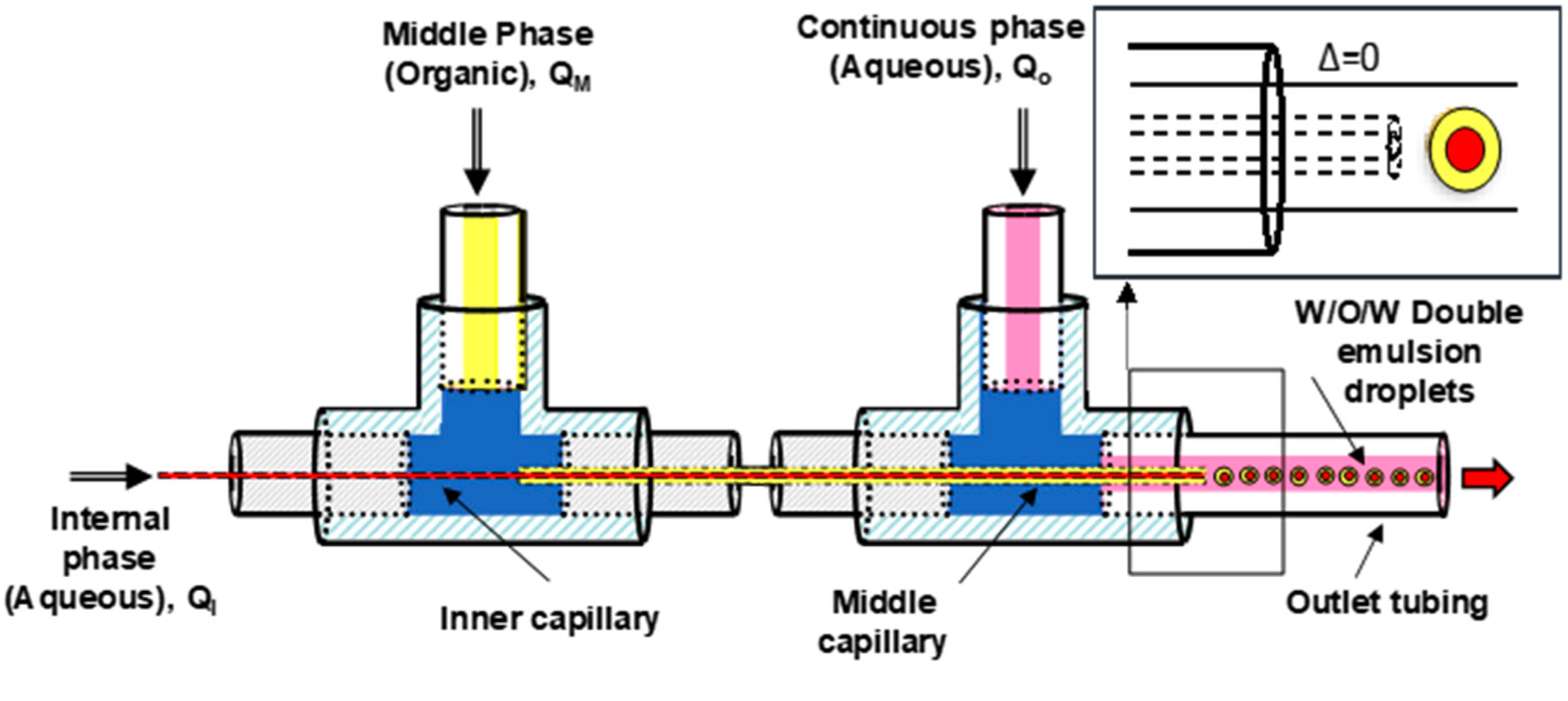Trojan pH-Sensitive Polymer Particles Produced in a Continuous-Flow Capillary Microfluidic Device Using Water-in-Oil-in-Water Double-Emulsion Droplets

A facile and robust microfluidic method to produce nanoparticle-in-microparticle systems (Trojan systems) is reported as a delivery vector for the oral administration of active pharmaceutical ingredients. The microfluidic system is based on two coaxial capillaries that produce monodisperse water-in-oil-in-water (W/O/W) double emulsions in a highly controlled fashion with precise control over the resulting particle structure, including the core and shell dimensions. The influence of the three phase flow rates, pH and drying process on the formation and overall size is evaluated. These droplets are then used as templates for the production of pH-sensitive Trojan microparticles after solvent evaporation. The shell of Trojan microparticles is made of Eudragit®, a methacrylic acid-ethyl acrylate copolymer that would enable the Trojan microparticle payload to first pass through the stomach without being degraded and then dissolve in the intestinal fluid, releasing the inner payload.
The synthesis of the pH-sensitive Trojan microparticles was also compared with a conventional batch production method. The payloads considered in this work were different in nature: (1) fluorescein, to validate the feasibility of the polymeric shell to protect the payload under gastric pH; (2) poly(D,L-lactic acid/glycolic acid)-PLGA nanoparticles loaded with the antibiotic rifampicin. These PLGA nanoparticles were produced also using a microfluidic continuous process and (3) PLGA nanoparticles loaded with Au nanoparticles to trace the PLGA formulation under different environments (gastric and intestinal), and to assess whether active pharmaceutical ingredient (API) encapsulation in PLGA is due efficiently. We further showed that Trojan microparticles released the embedded PLGA nanoparticles in contact with suitable media, as confirmed by electron microscopy. Finally, the results show the possibility of developing Trojan microparticles in a continuous manner with the ability to deliver therapeutic nanoparticles in the gastrointestinal tract.
Continue reading here
About this article: Larrea, Ane, Manuel Arruebo, Christophe A. Serra, and Victor Sebastián. 2022. “Trojan pH-Sensitive Polymer Particles Produced in a Continuous-Flow Capillary Microfluidic Device Using Water-in-Oil-in-Water Double-Emulsion Droplets” Micromachines 13, no. 6: 878. https://doi.org/10.3390/mi13060878
Materials
Both polymers—Eudragit® L100-55, an enteric polymer based on an anionic methacrylic acid-ethyl acrylate copolymer (1:1), and Resomer® RG 504, an ester terminated poly(D,L-lactic acid/glycolic acid) 50:50 (PLGA; MW 38–54 KDa)—were supplied by Evonik Industries (Evonik Röhm GmbH, Germany). The surfactants sodium cholate hydrate (<99%), Pluronic F68, Span® 80 and PVA (Mowiol® 18–88, P.M~130,000); the encapsulated drug rifampicin, fluorescein 5-isothiocyanate (FITC); and methylcellulose and solvents including ethyl acetate, ethanol, acetonitrile were purchased from Sigma Aldrich (St. Louis, MO, USA) and used as received.

